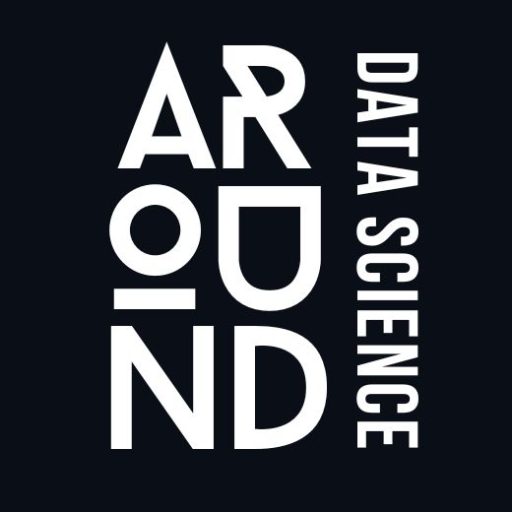Why Causal AI Matters for Algerian Businesses
Causal AI is the future of business decision-making and it’s already reshaping analytics across Algeria.
According to AI researchers and industry leaders, such as Judea Pearl and McKinsey, the vast majority of business analytics today— estimated at over 90%— still rely on correlations rather than true causal insights. That’s a massive problem for data-driven decision-makers. In Algeria’s rapidly evolving market, relying solely on correlations can lead to missed opportunities or suboptimal investments.
But here’s the good news: Causal AI is changing that. This cutting-edge approach goes beyond traditional machine learning and predictive analytics to identify actual cause-effect relationships. That means more accurate forecasting, better strategic decisions, and stronger ROI.
In this article, you’ll learn what Causal AI is, why it’s a game changer for Algerian companies, and how to apply it in real-world scenarios.
Ready to unlock better business intelligence? Keep reading to find out how Causal AI can transform your analytics approach.
What is Causal AI and Why Should Algerians Care ?
Causal AI refers to artificial intelligence that understands and models cause-effect relationships, not just correlations.
Traditional analytics may show that two events happen together, but they don’t explain why. For example, increased social media ads may correlate with higher sales. But did the ads cause the sales, or was it just seasonal demand?
Causal AI answers that question.
It uses mathematical models, domain knowledge, and statistical techniques to determine what actually causes what. This means Algerian businesses can make smarter, more strategic choices.
Key Features of Causal AI :
- Causal inference models
- Bayesian networks
- Counterfactual reasoning
- Graph-based causal models
- Interventional analysis
Why Is Causal AI Important for Algerian Business Analytics?
Causal AI isn’t just a buzzword, it’s a critical tool for Algeria’s digital economy.
Here’s why:
1. Smarter Decision-Making
Understanding causation enables more confident, effective business decisions.
2. Improved Resource Allocation
Know what actually works, so you invest time and money wisely.
3. Enhanced Forecasting
Move beyond “what might happen” to “what will happen if we do X”.
4. Competitive Advantage
Companies leveraging Causal AI make fewer errors and stay ahead in dynamic markets.
Algerian Use Cases:
- Retail: What promotions really drive foot traffic?
- Finance: What events cause changes in customer spending?
- Healthcare: What interventions reduce patient readmissions?
- Telecom: What causes customer churn in Oran or Algiers?

Figure: Entity relationships in Algerian sectors where Causal AI can identify what causes customer behavior or health outcomes.
How Does Causal AI Work in Practice?
Causal AI combines data science, AI modeling, and domain expertise.
See : Python for Data Science: 5 Free Certification Courses You Can’t Miss
Core Methods:
- Causal Graphs: Visualize relationships between variables (e.g., sales → ad spend or seasonality).
- Do-Calculus (Pearl’s Framework): Estimate what happens under interventions.
- Counterfactuals: Ask “What if?” scenarios to simulate alternate realities.
- Randomized Controlled Trials (RCTs): Use experimental design when possible.
- Propensity Score Matching: Create balance in observational data when experiments aren’t feasible.
Common Tools:
- DoWhy (Microsoft)
- CausalNex (QuantumBlack)
- EconML (Microsoft)
- TETRAD (Carnegie Mellon)
- Zelros (for insurance AI modeling)
Algerian analysts can leverage open-source libraries to implement these models with Python.
5 Bonus Tips for Mastering Causal AI in Algeria
1. Start with a Clear Hypothesis
Don’t just feed data into the model. Frame a question: “Does customer support quality cause higher retention?”
2. Understand Your Domain
Causal AI relies on context. A retail chain in Algiers has different causal dynamics than a fintech startup.
3. Use Hybrid Models
Combine machine learning (XGBoost, LightGBM) with causal inference for more robust outputs.
4. Leverage Local Data Sources
Integrate Algerian-specific data—weather, regional GDP, cultural events—to increase relevance.
5. Communicate Causality Simply
Train teams to understand and explain causation vs. correlation using visuals and real-life examples.
Conclusion for Causal AI
Let’s summarize how Causal AI is revolutionizing Algerian business analytics:
- Causal AI identifies cause-effect, not just patterns.
- It helps make decisions that are actionable, not just descriptive.
- Algeria’s industries—retail, finance, telecom, health—can all benefit.
- Combining tools like DoWhy or CausalNex with domain knowledge leads to stronger insights.
- Local professionals should start integrating Causal AI into dashboards and KPIs.
Now is the time to embrace the power of Causal AI.
Start your journey to become a data-savvy professional in Algeria. Subscribe to our newsletter and visit Around Data Science on LinkedIn.





0 Comments